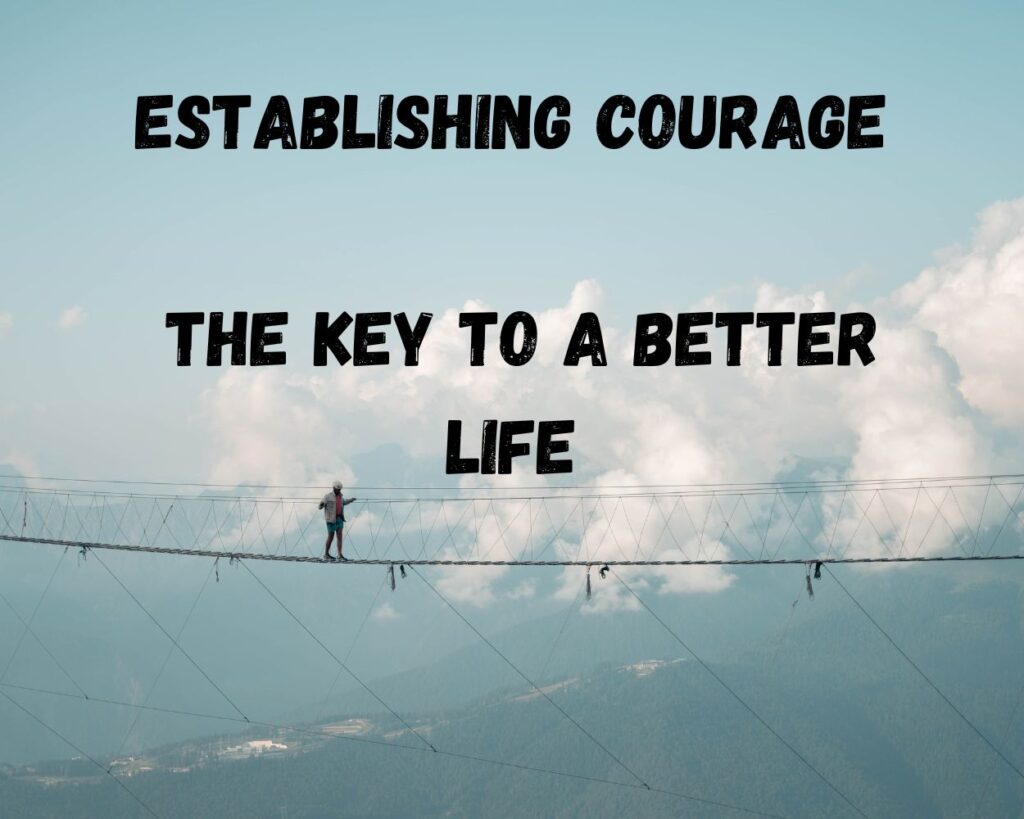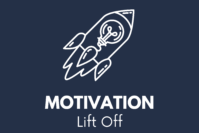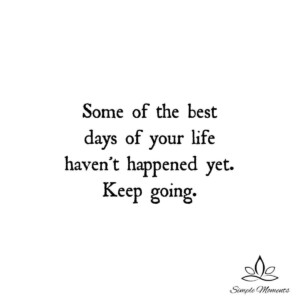Courage is not the absence of fear, but the triumph over it. In the journey of life, establishing courage is a pivotal step towards bettering oneself. It’s about recognizing your fears, yet finding ways to overcome them and not allowing them to control you. True courage involves facing fear, understanding it, and moving forward despite its presence.
The Role of Courage in Personal Growth
When you cultivate courage, you empower yourself to take risks that lead to a brighter future, risks you might not have considered before. Courageous individuals are those who can face their fears, learn from their experiences, and use this knowledge to progress in life. They are the ones who step forward when opportunities arise and are equally graceful in stepping back to evaluate and learn from their mistakes.

The Power of Relaxation and Trust in Self-Improvement
A key aspect of bettering your life is learning to relax, especially when things don’t go as planned. For instance, if an outdoor plan is ruined due to bad weather, a courageous person finds alternative ways to enjoy the day. This adaptability and positive outlook are crucial for personal growth.
Trusting yourself is another cornerstone of self-improvement. When you trust your instincts and abilities, you naturally extend this trust to others. This self-trust is essential in a world where trust can be scarce. It helps you take responsibility for your actions and decisions, without unfairly blaming others when situations go awry.
Creativity, Critical Thinking, and Acceptance
Enhancing your life also involves engaging your creative and critical thinking skills. Generating new ideas and exploring various options are signs of a proactive and successful mindset. Life presents numerous opportunities, and it’s up to you to recognize and utilize them.
Life is replete with uncomfortable situations, but how you deal with these discomforts defines your journey. For example, feeling nervous during an interview is normal. The question is, are you willing to embrace this discomfort and find a way to excel, or will you let it hinder your chances?
Conclusion
Acceptance is the key to happiness and self-improvement. Embracing both the good and the bad in life teaches you resilience and contentment. If you struggle with acceptance, it might be worth revisiting these concepts. Remember, courage is not about being fearless; it’s about how you handle and grow from your fears. By establishing courage, you set the foundation for a life that is not only better but also more fulfilling and resilient.
How Can I Start Building Courage in My Daily Life?
Answer: Building courage starts with small steps. Begin by facing minor fears and gradually challenge yourself with bigger ones. Acknowledge your fears, understand them, and then take action despite them. It could be as simple as speaking up in a meeting or trying a new activity. Remember, courage grows with practice.
What Should I Do When I Feel Overwhelmed by Fear?
Answer: When overwhelmed by fear, take a moment to pause and breathe. Reflect on past instances where you’ve successfully overcome fear. Break down the situation into smaller, manageable parts and tackle them one at a time. Seeking support from friends, family, or professionals can also be incredibly helpful.
How Can Trusting Myself Lead to a Better Life?
Answer: Trusting yourself boosts your confidence and decision-making skills. It helps you to rely on your judgment and intuition, leading to more authentic and fulfilling life choices. Self-trust also reduces dependency on others’ approval, allowing you to live a life that’s true to your values and beliefs.
Can Accepting Discomfort Actually Improve My Life?
Answer: Yes, accepting discomfort is a crucial part of growth. It allows you to step out of your comfort zone and embrace new experiences. This acceptance helps you to learn, adapt, and become more resilient. Remember, growth often happens in moments of discomfort.
How Can I Maintain Courage in the Face of Repeated Failures?
Answer: Maintaining courage in the face of failure is about perspective. View failures as learning opportunities rather than setbacks. Reflect on what each failure teaches you and how it can guide your future actions. Stay committed to your goals and remember that persistence is key to overcoming challenges.
Is It Possible to Be Courageous and Still Feel Fear?
Answer: Absolutely. Courage is not the absence of fear but the ability to act in spite of it. Feeling fear is a natural human response. What matters is how you manage and respond to that fear. Courageous people acknowledge their fear and find ways to move forward regardless.
How Do I Balance Courage with Caution?
Answer: Balancing courage with caution involves assessing risks and making informed decisions. It’s about not letting fear hold you back while also not being reckless. Weigh the pros and cons of a situation, consider the potential outcomes, and then proceed with a balanced approach.
Cultivating courage and bettering your life is a continuous process that involves facing fears, trusting yourself, accepting discomfort, and learning from failures. It’s about finding the balance between courage and caution and understanding that fear is a natural part of the journey. By embracing these principles, you can lead a life that is not only courageous but also rich in growth and fulfillment.
As an Amazon Associate we earn from qualifying purchases through some links in our articles.




